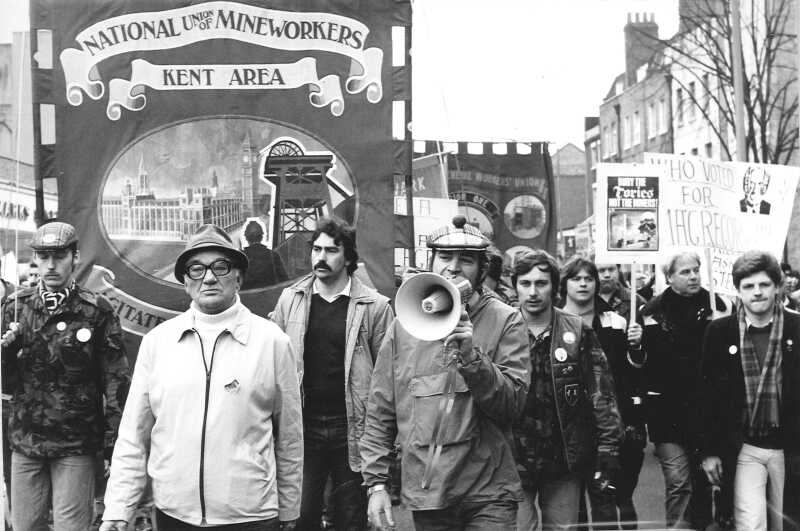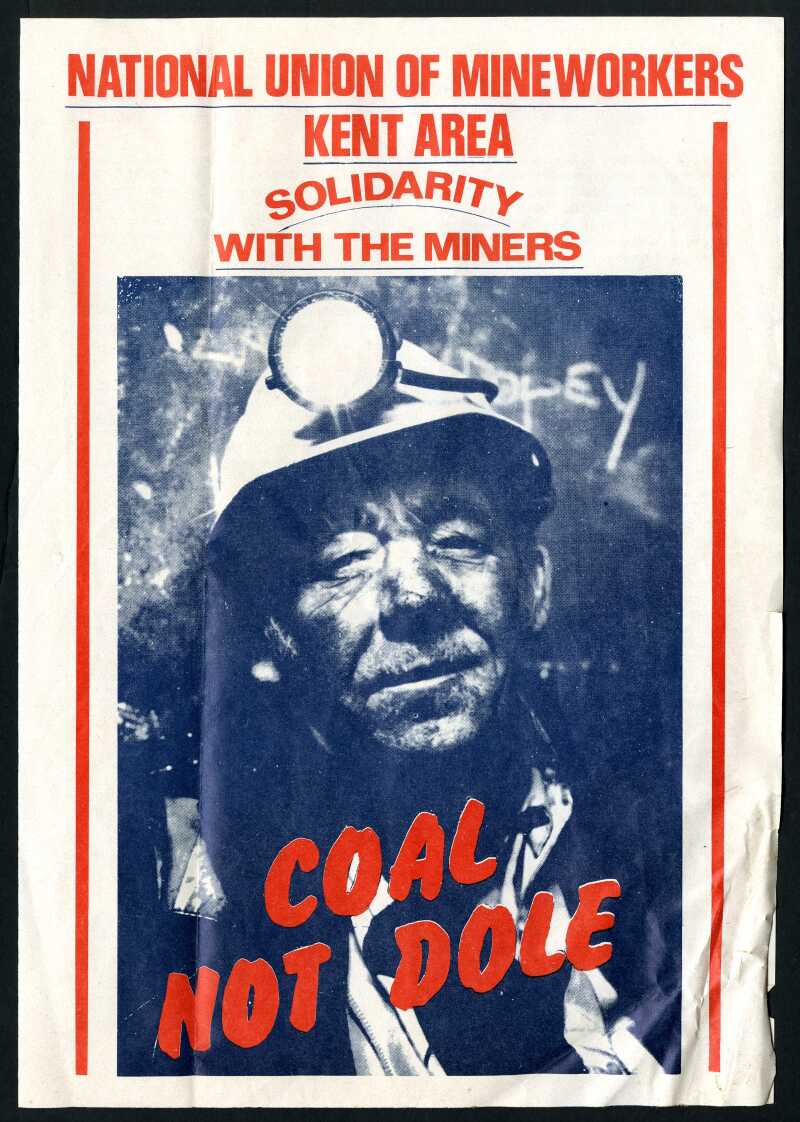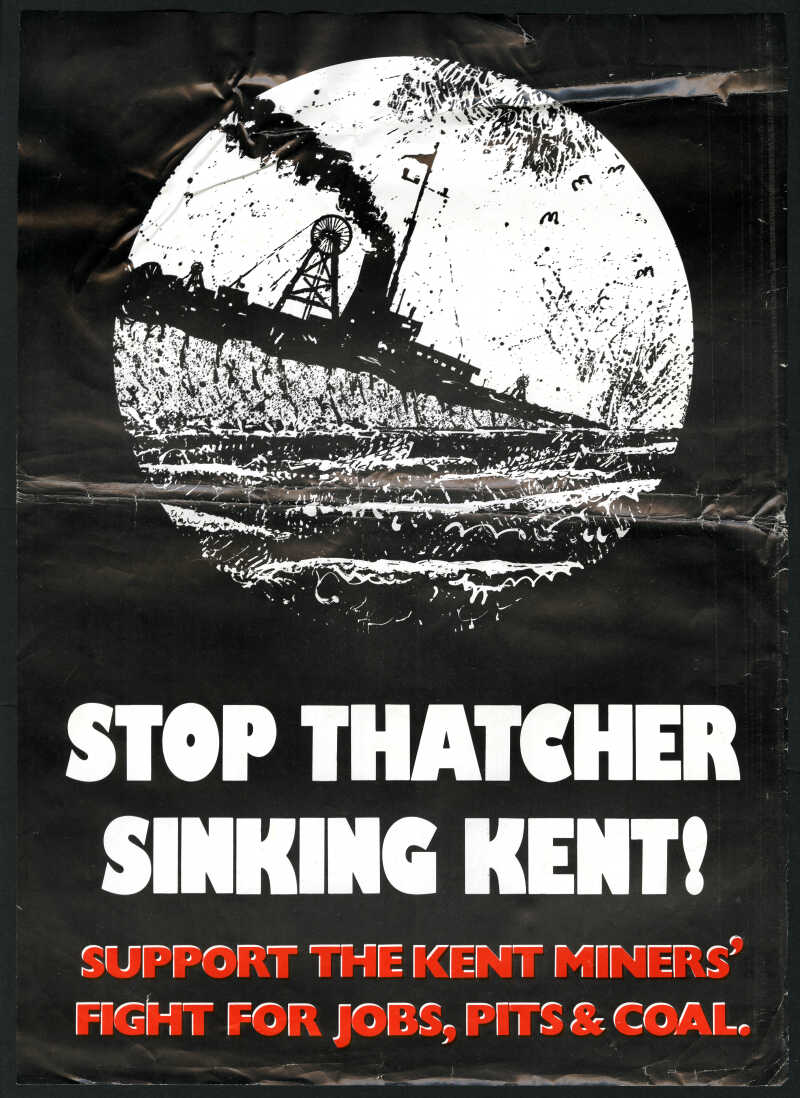
Photograph of protesting miners (Richardson Mining Collection)
Kent miners were early supporters of the national miner’s strike. On the 11th March 1984 Kent miners met at Deal Welfare Club to endorse the strike and agreed to resist the announced pit closures. They also called on the NUM for a national ballot on strike action.
A few days later on March 16th the Kent branch of the NUM drew up plans for pickets across Kent and discussed how Kent miners would support flying pickets across the country. Kent miners faced being arrested if they were detained attempting to travel to pickets across England. Some were turned back at the Dartford Tunnel by police and warned they would be arrested if they tried to leave Kent to join other picket lines.
Miners also sometimes occupied the Kent mines in protest. For example on 17th June 1984 miners occupied Betteshanger, and on 18th July they occupied Tilmanstone. Several were dismissed following the occupations.

Cover from a information leaflet published by the National Union of Mineworkers Kent Area (Richardson Mining Collection)
Kent miners often joined marches in London and elsewhere to protest about the closure of mines and the destruction of mining communities. On 27th June 1984 the South East Region TUC-NUM Day of Solidarity march in London took place in support of striking miners.
Throughout 1984 there were regular musical events, fundraisers and rallies in support of strikers and their families. Soup kitchens and food parcels funded from supporters enabled mining families to feed their children and themselves while they were without pay. At Christmas, the South-East region of the TUC arranged for turkey and Christmas pudding to be sent to the families of striking miners in Kent.

Poster from the Richardson Mining Collection.
On March 3rd 1985, while the national strike was announced to be over, the Kent miners remained on strike. At a mass meeting in Ramsgate on March 4th 1985, the meeting agreed to reject calls for a return to work. On March 5th, when many miners across the nation returned to work, Kent miners remained on strike.
This became impossible to sustain, and on 11th March 1985, Kent miners marched back to work, marking the one-year anniversary of the beginning of the strike in Kent.
Ultimately, the strike ended in defeat for the miners. In Kent, while productivity increased at Betteshanger in the years after the strike, the future prospects for coal production were poor. Tilmanstone closed in 1986, Snowdown in 1987, and Betteshanger in 1989.




